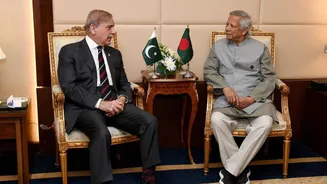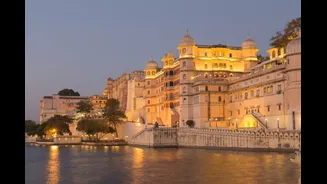The offer came a day after Bangladesh’s interim chief adviser, Muhammad Yunus, stirred controversy by gifting a Pakistani general a distorted map of Bangladesh that showed India’s northeastern states as part of the country.
Pakistan offer Karachi port to Dhaka
Amid strained India-Bangladesh trade relations, Pakistan has sensed an opportunity to reset ties with Dhaka. During the 9th Joint Economic Commission (JEC) meeting held in Dhaka — the first in two decades — Pakistan proposed allowing Bangladesh to use the Karachi port for exporting jute and other goods. The meeting was co-chaired by Pakistan’s petroleum minister Ali Pervez and Bangladesh’s finance adviser.
Pakistan-based Samaa TV, both sides also agreed to strengthen cooperation between their national shipping corporations. The proposal could provide Bangladesh direct maritime access to markets in China, the Gulf, and Central Asia — though some experts have questioned the economic viability of such a route.
The offer comes just weeks after India imposed restrictions on overland imports of Bangladeshi jute and related products, effectively tightening its trade policy toward Dhaka.
Revival of old ties
The Pakistan-Bangladesh dialogue marks a symbolic revival of engagement between two nations that share a complex past — Bangladesh having gained independence from Pakistan in 1971 with India’s support. The renewed cooperation, therefore, carries significant diplomatic weight, symbolising a rare instance of collaboration between the once “East” and “West” Pakistan, with India now lying between them.
What the cooperation covers
Beyond trade, both countries agreed to enhance ties across several sectors, including energy, climate initiatives, health, information technology, investment, tourism, and industrial development. They also discussed launching direct flights to improve people-to-people and business links.
Additionally, the Pakistan Halal Food Authority and the Bangladesh Standards and Testing Institute signed a memorandum of cooperation to collaborate on quality standards — a move expected to help both countries tap into the global halal market.
Timing crucial for India
The development comes as India’s relations with the interim Bangladeshi regime have soured. Since Nobel laureate Yunus took charge last year following Sheikh Hasina’s ouster in a youth-led revolt, Dhaka’s rhetoric toward New Delhi has hardened.
With Hasina now in exile in India, the Modi government has expressed concern over the treatment of minorities in Bangladesh, while Dhaka has accused New Delhi of economic coercion. Earlier this year, India banned imports of several Bangladeshi goods — including jute products, processed foods, and textiles — through land routes, a move seen as retaliation for Dhaka’s decision to restrict Indian yarn exports.
Pakistan’s outreach, therefore, comes at a strategically sensitive time — offering Dhaka both an alternative trade route and a potential diplomatic counterweight to India.

















